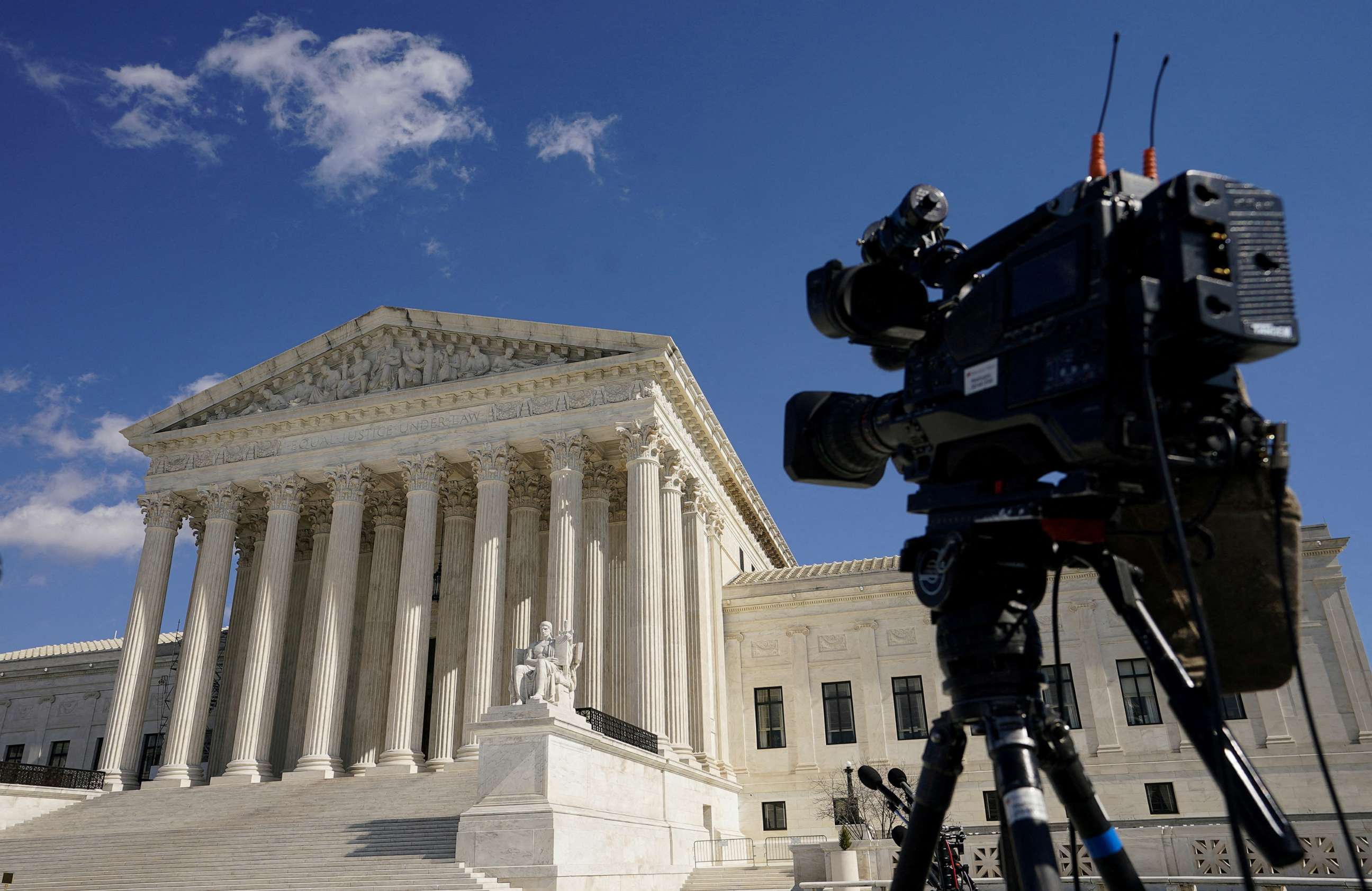In sweeping decision, SCOTUS rules for Christian web designer's free speech rights over LGBTQ+ protections
The conservative majority ruled 6-3 for the evangelical Christian creator.
The Supreme Court on Friday ruled for an evangelical Christian website designer in a case involving whether creative businesses can refuse to serve LGBTQ+ customers citing First Amendment free speech rights.
In a 6-3 decision for the conservative majority written by Justice Neil Gorsuch, the court said wedding websites are a form of speech and Colorado's anti-discrimination law cannot force a designer to express something she does not wish to express. More broadly speaking, the ruling said certain businesses can refuse some services to LGBTQ+ people or any customer whose message they might oppose and wish not to express.
"The First Amendment envisions the United States as a rich and complex place where all persons are free to think and speak as they wish, not as the government demands," Gorsuch wrote. "Colorado cannot deny that promise consistent with the First Amendment."
The designer, Lorie Smith, sued the state in 2016 challenging its Anti-Discrimination Act. The law states businesses open to the public cannot refuse services to customers based on sexual orientation, race, or disability.
Smith, who opposes gay marriage, said the law forced her to express support for something that violates her religious beliefs in violation of her constitutional rights.
The court's conservative majority agreed with her, stating the "First Amendment extends to all persons engaged in expressive conduct."

Justice Sonia Sotomayor, in a dissent read from the bench, said this is the first time in history the court has granted a business open to the public a right to refuse service to members of a protected class.
Sotomayor warned the effect of the decision is not limited to the LGBTQ+ community, writing "the decision's logic cannot be limited to discrimination on the basis of sexual orientation or gender identity."
"The decision threatens to balkanize the market and to allow the exclusion of other groups from many services," she said. "A website designer could equally refuse to create a wedding website for an interracial couple, for example."
Colorado Attorney General Phil Weiser criticized the court's decision and said Colorado, within the confines of the ruling, will continue to "hold accountable those who engage in unlawful discrimination."
"This deeply concerning opinion is far out of step with the will of the American people and American values," Weiser said. "The opinion represents a radical departure from decades of Court precedent and fails to uphold the principle of 'Equal Justice for All' inscribed on the U.S. Supreme Court building.
President Joe Biden slammed the court's ruling as "disappointing" and expressed concern about the potential fallout from the broad ruling.
"While the Court's decision only addresses expressive original designs, I'm deeply concerned that the decision could invite more discrimination against LGBTQI+ Americans," he said. "More broadly, today's decision weakens long-standing laws that protect all Americans against discrimination in public accommodations – including people of color, people with disabilities, people of faith, and women."
"My administration remains committed to working with our federal enforcement agencies to rigorously enforce federal laws that protect Americans from discrimination based on gender identity or sexual orientation," Biden continued. "We will also work with states across the country to fight back against attempts to roll back civil rights protections that could follow this ruling. And we will accelerate our march towards full equality for every American."



